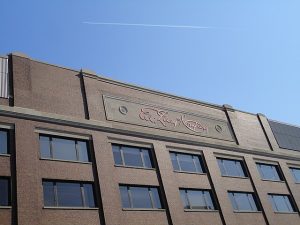In a move signaling its commitment to advancing treatments for autoimmune diseases, Pharmaceutical giant Eli Lilly has made a substantial investment in oral IL-17 inhibitors. The company recently acquired Dice Therapeutics for an upfront payment of $2.4 billion, with hopes that this strategic move will enhance the effectiveness of its existing arsenal against these conditions.
The purchase agreement, approved by the boards of both companies, stipulates that Lilly will pay $48 per share of Dice, representing a 40% premium above the biotech 30-day volume weighted average trading price. By acquiring Dice Therapeutics, Lilly gains access to two clinical assets with immense potential: DC-806 and DC-853.
DC-806, an oral small-molecule antagonist of the pro-inflammatory cytokine interleukin-17 (IL-17), is currently in Phase 2 trials for the treatment of psoriasis. Initial findings from Phase 1 trials indicated that DC-806 showed remarkable promise, with a 43.7% reduction in psoriasis area and severity. This data led Dice to declare it to have best-in-class potential. With the acquisition, Lilly is poised to capitalize on the momentum of DC-806 and further optimize its efficacy.
However, it is DC-853, currently in development, that has garnered considerable attention.
Scientists anticipate that DC-853 possesses superior efficacy and metabolic stability compared to its predecessor, DC-806. In the latter half of this year, preliminary results from a Phase 1 trial of DC-853 as an IL-17 antagonist in healthy volunteers is expected to be unveiled. Moreover, Lilly envisions expanding the application of this therapy to treat conditions such as hidradenitis suppurativa, which were not covered by DC-806.
Beyond these assets, Lilly collaboration with Dice Therapeutics brings forth the potential of an oral VX program for fibrosis and an oral 4/7 program for inflammatory bowel disease. Although still in the discovery phase, these initiatives hold the promise of offering alternative treatment options for patients suffering from these debilitating conditions.
Another area of significant promise lies in the realm of oral PD-L1 therapy, which has shown great potential for the treatment of various malignancies. Lilly foray into this field is expected to have far-reaching implications for cancer patients, potentially revolutionizing treatment approaches and improving outcomes.
Through the acquisition of Dice Therapeutics, Lilly has made a resounding statement of its
commitment to advancing autoimmune disease treatments. By investing heavily in oral IL-17 inhibitors, Lilly aims to bolster its existing portfolio and tap into the immense potential of DC-806 and DC-853. This strategic move reflects the company's dedication to improving the lives of patients affected by autoimmune diseases and underscores its position as a leading player in the pharmaceutical industry.
As the partnership between Lilly and Dice Therapeutics progresses, the scientific and medical communities eagerly await the results of ongoing clinical trials and the unveiling of promising therapies.























